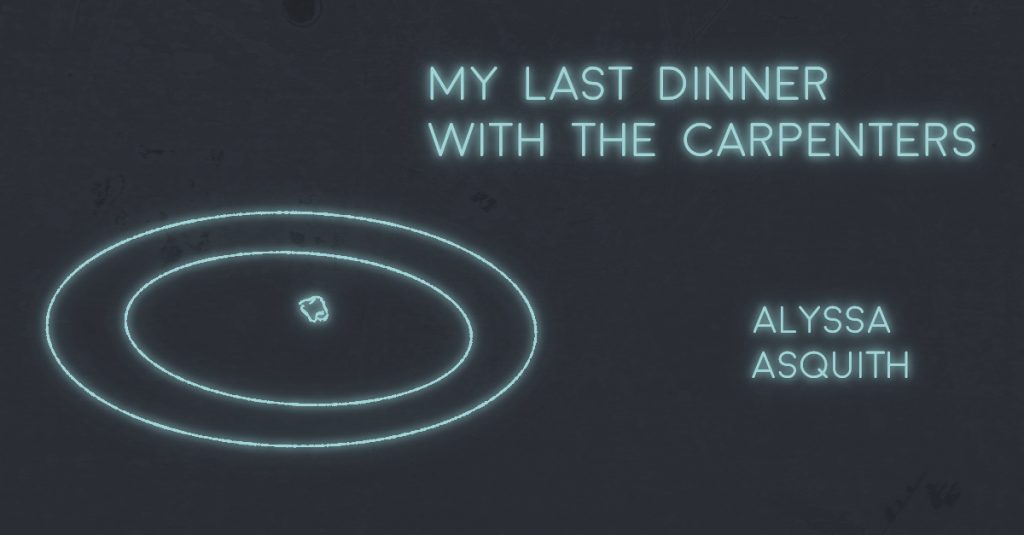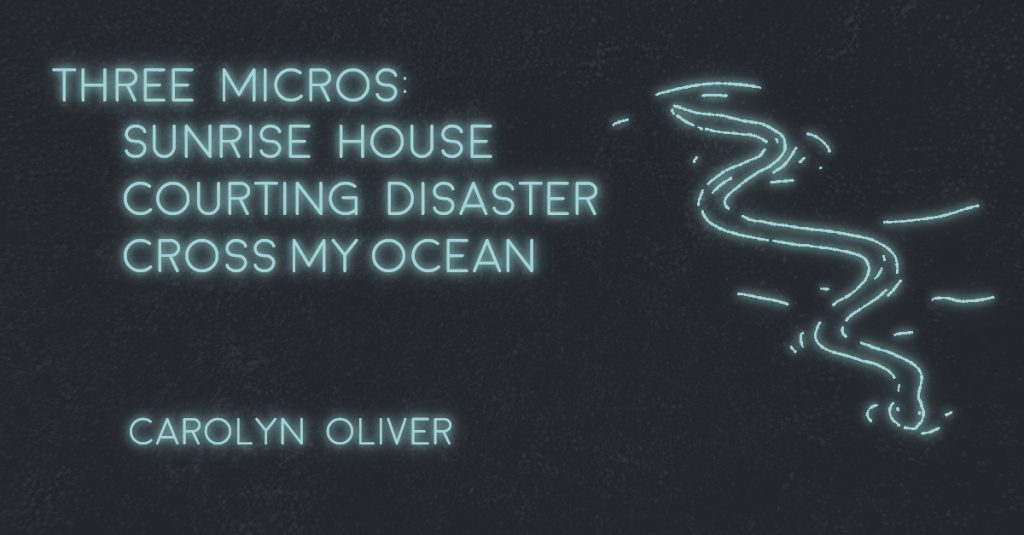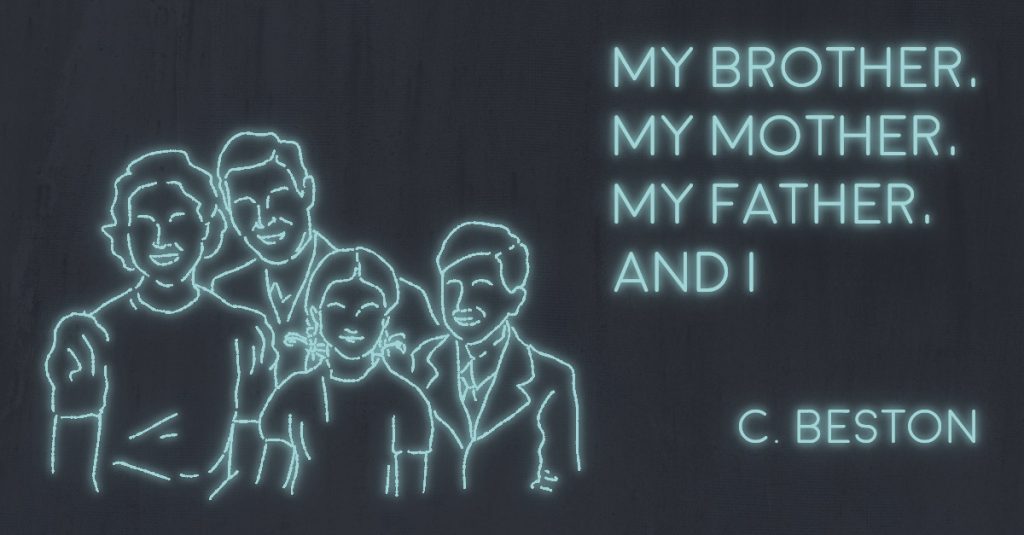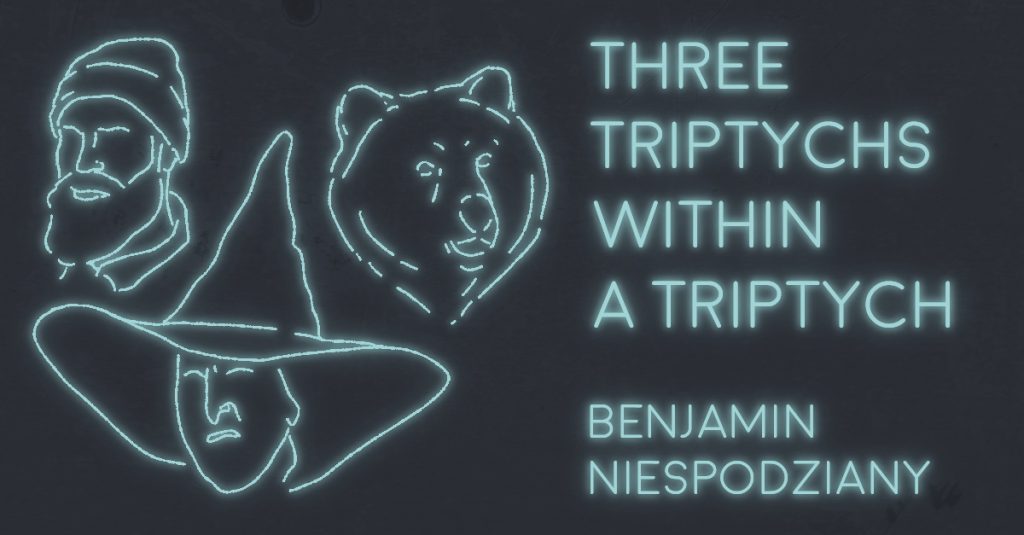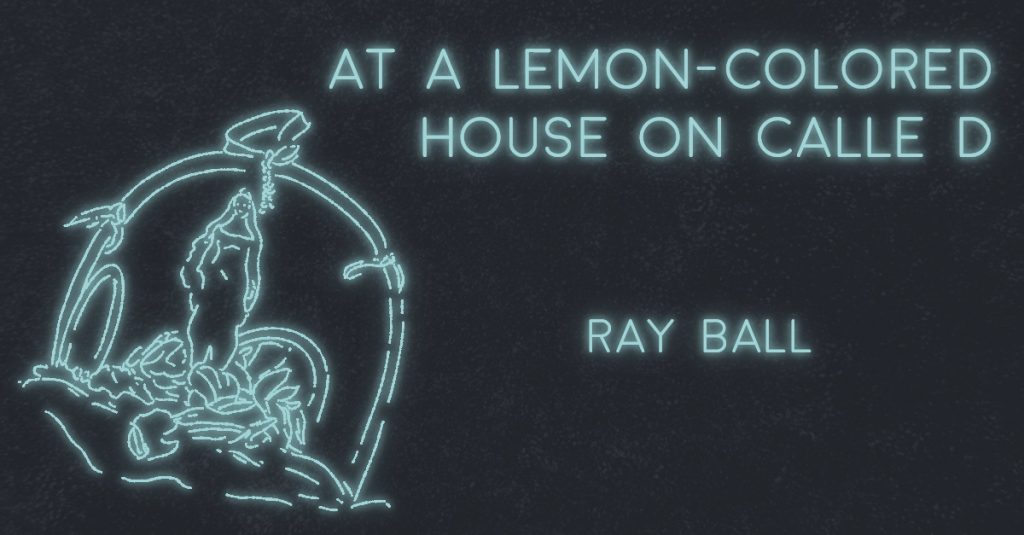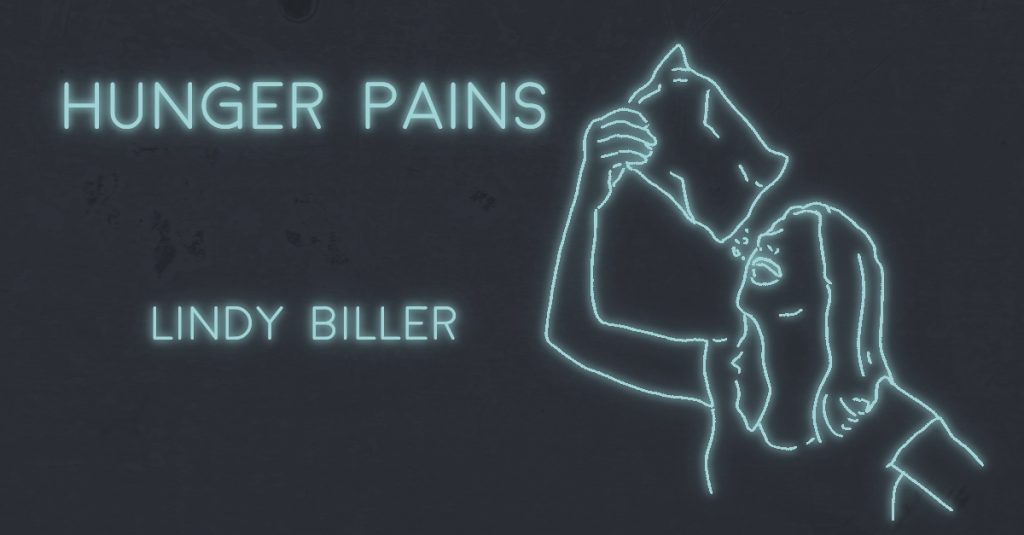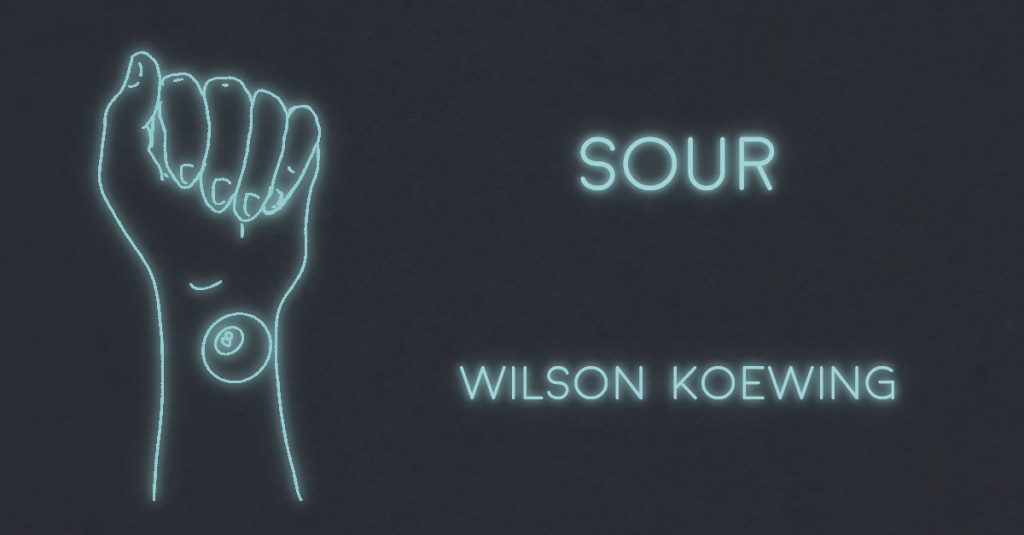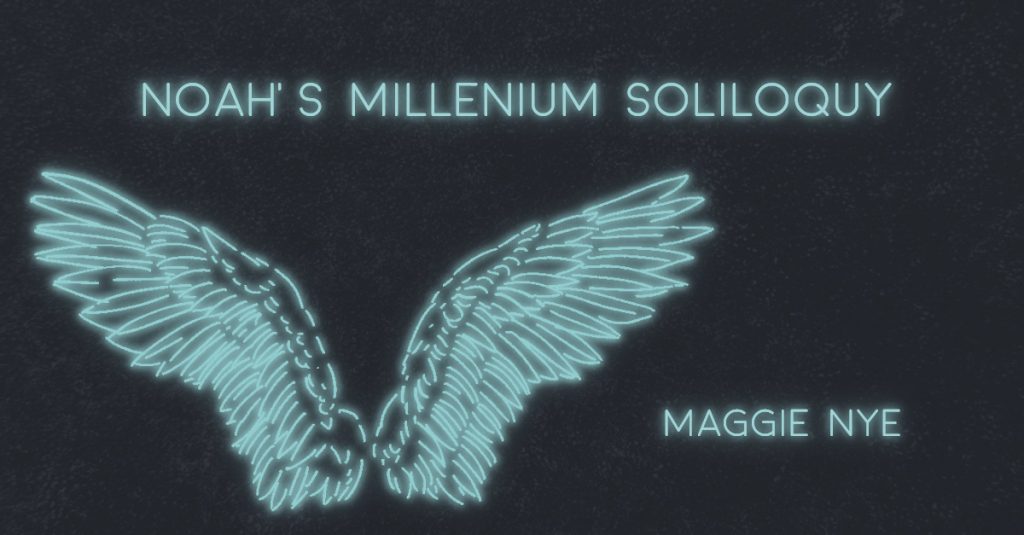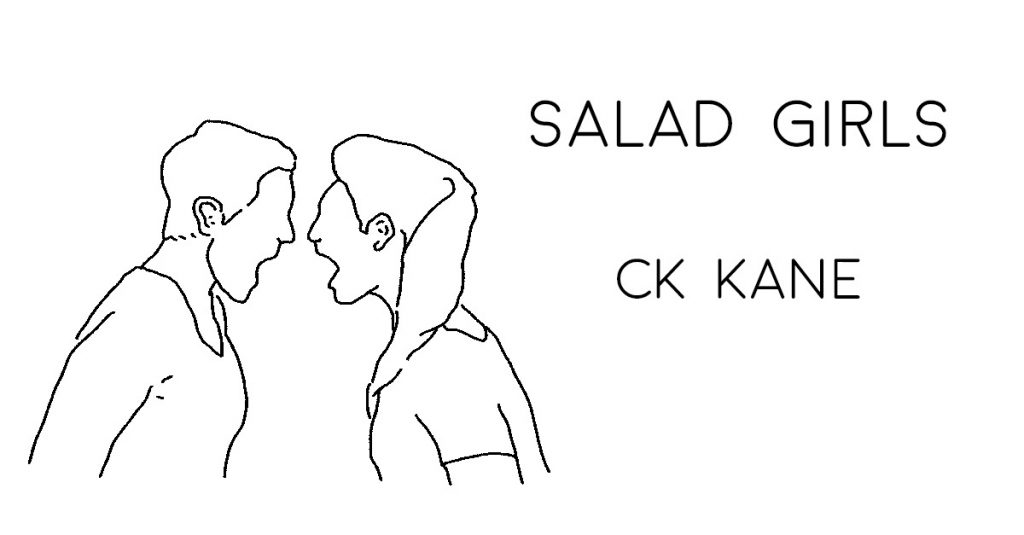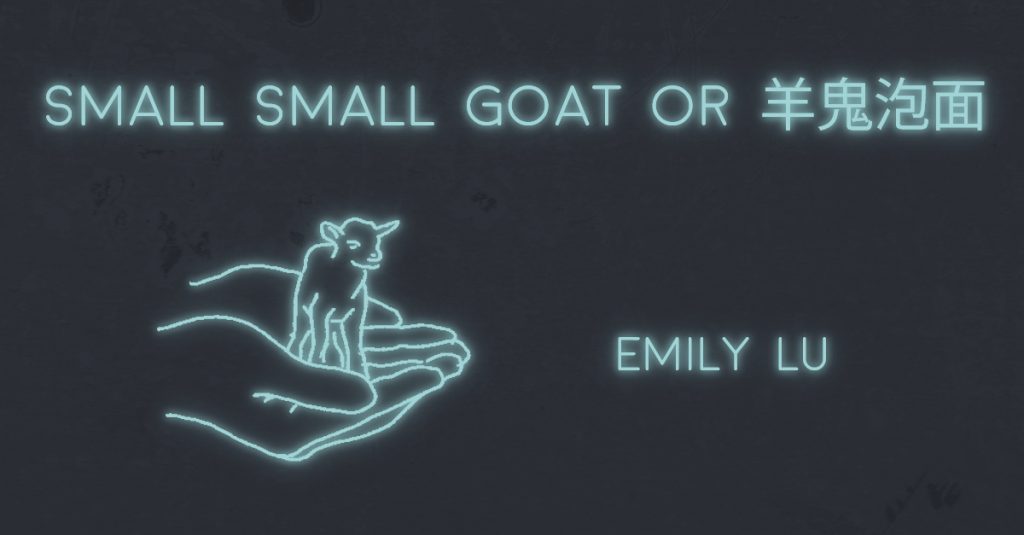I don’t want my mom to die not because I like her, but because she’ll be the nastiest ghost. Unrelenting in death. I just know it. I pull her boots off like always. Using both hands, I make an ugly face and lean my body trying to pull. She moans like always. Whenever she’s not on a horse she’s in this bed. Crumbs of caked mud and crap get on the white sheets as the second boot finally gives and I almost fly across the room. Still in her breeches and a turtleneck, she pulls the covers over her save for a long black braid. The lived-in covers smell like dandruff.
*
A bell sound rattles sharp metallic through my bedroom. Our doorbell almost never rings, so I don’t get up right away, I just freeze with my hand stuffed down my jeans, distracted from my drawing.
Downstairs in the doorway, she looks like one of the paper cut-out puppets I used to make. Just a dark shape. I recognize her but I don’t know if I should act like it.
“Karl,” says her mouth, like those wax lips we used to get at Halloween that weren’t exactly candy. She smells like the smoking section. Hi Auntie Deb, I say to her grin. A force allows me to stand a certain distance away from her, like the back of a magnet. It almost tickles when I step closer. She hears my mom wailing from upstairs through the walls and her down comforter. I don’t notice until she does.
Outside the bedroom the groaning is unbearable.
Auntie Deb leans in: “Ever since your father, huh.”
I nod, but I don’t remember.
I’m glad I don’t feel much. There’s no room in this house for anyone else’s feelings.
Auntie Deb click-clacks into my mother’s room, chattering.
Lydia, what did you take.
Lydia, this boy must be close to six feet already.
Her fingernail is a shade of red I’ve never seen before, almost brown, almost purple. It faintly scratches along the grain of the sheets: “My God, these cost more than my whole life and you wear your barn clothes to sleep?”
I remember a party a few years ago in a different town in Connecticut, one that seemed like the black & white version of our town. After the party I asked my mom if we were filthy rich. And she grabbed my face so hard and shook it and said, “Who taught you how to speak like that? Someone said that, you haven’t heard that in this house, who said that, who taught you that?”
I felt extra dumb. That was the last time I’d seen Auntie Deb until now.
The phone makes its wild sound to remind us it’s off the hook, its cord of tired curls swinging like a noose in waning lopes. My mom keeps it that way. Auntie Deb unplugs the phone from the wall and hangs it up, hard. She sits on the bed and rubs my mom’s back and I watch from the doorway, feeling the magnet feeling but also an upset. Like ticklish surgery.
The fingernail traces my mom like chalk through the dandruff horse shit covers.
“So skinny, Lydia. How do you stay so thin?”
My mom rolls her eyes, I’m not sure if it’s voluntary.
Coke and toast, I say.
Auntie Deb looks at me.
I tell her she only eats Coke and toast. Real Coke, not diet. White toast, I clean up the crumbs. With butter.
I think about my mom’s deliberate, aggressive cracking of a can of Coke. Almost violent. A sound I try to flee the room before I have to hear. The craziest burps, too. You’d never think such a skinny lady would have these Homer Simpson burps. But when I burped she told me I was disgusting and she hated me. I don’t burp around her anymore.
*
Auntie Deb in my room is awkward like Herman Munster, like she’s going to break something even though nothing is really breakable.
“How old are you, thirteen? You have the room of an old man.”
Her eyeballs swirl around like she’s worried about stalactites threatening to fall from the ceiling and impale her.
What if I am an old man, I reply to the back of her head.
*
Pepsi is the scraggly cat who paces around Auntie Deb’s porch. I call to him with a Psst psst psst. He glances at me before I go inside. Auntie Deb gets off the phone in her kitchen and tells me my mom is doing ok. The kitchen is yellow, everything. I hand her a refrigerator magnet. I stole it from a gift shop at Schiphol airport last summer when I visited Oma and Opa. It’s a small pair of wooden clogs. I guess I thought I might give it to someone at school. They hadn’t seen me in years. Oma was so upset by how much I resemble my dad she wouldn’t look at me. Opa and I would take walks through Oud-Zuid and return to their creaky house on Amstelveenseweg with something new every day: art supplies, a travel chess set, a little dinosaur sculpture, or just some still-warm bread.
“Aren’t you sweet,” her hand grasps the clogs and the fingernail presses them onto the fridge.
“What’s this for?”
I tell her, you know, for watching me or whatever.
I chop a fat golden onion on the cutting board like she tells me to. Stinging drips pour from my nose and I slip.
Blood squirts from my fingertip in weird beats and I wonder if I’ll need a stitch, I think so. Auntie Deb click-clacks over, standing worriedly behind me. I smell the smoking section and also her rose perfume, “Because people to whom the Virgin Mother has appeared, you know, they all report smelling roses first. An overwhelming aroma of rose. Rhapsodic.” The fingernails pinch my blood-finger and lift it to the wax Halloween lips like mini hors d’oeuvres.
And then she sucks.
*
The living room is like a garage sale. I do my homework and Pepsi stares at me through the window’s lacy curtain. My finger is starting to peel from where Auntie Deb filled it with superglue. She always has this cha-cha music playing and I guess it’s supposed to be cheerful but it’s so, so sad. It’s loud enough to hear above all else but also it fades into the carpet fluff like snowfall. I let Pepsi inside and he mews around my legs. Auntie Deb click-clacks out of the kitchen in an apron that she double-tied around her waist, pleased.
“I’m skinnier than your mom, now.”
Her mouth is a purple hole in her face from drinking wine. She notices Pepsi after a while and the purple hole contorts:
“Get him out of here or I’ll break that cat’s neck so fast your head’ll spin, don’t think I won’t do it.”
I carry Pepsi outside and remember my mom used to follow threats with so fast your head’ll spin when she still said things to me, and it always seemed so ghoulish.
The corduroy chair swallows me. Its coils are spent, its dimensions cartoonish. Auntie Deb sips from a chipped crystal cup on the floral couch and taps through the channels as the glow of the TV illuminates the purple hole. She asks if I remember my dad and if so can I still hear his voice saying things, because she can, and she wonders if they’re the same things. I tell her they’re not the same things because he didn’t speak in English to me, which bothered my mom. The purple hole smiles.
“God forbid Lydia feel excluded.”
An audience looms around us. Saint relics and porcelain figurines of poodles, butterflies and Siamese cats peek from their shelves, dead-eyed.
“He liked—” the purple hole corrects itself in a tone even lower in its gravel throat. “He wanted me, your father.”
I join her on the couch, entering her ticklish force field. She palms my skull. Her fingernails sift through my hair, letting it fall back into place like she’s flipping through pages in a book. Roses. Rhapsodic. She holds her cup to my face and my teeth clank the crystal when I gulp down her wine.
*
After my dad died a guy started coming over to tune the baby grand piano. He was balding and had drawn on a widow’s peak with black crayon, it looked like. My mom was awfully friendly to him, it wasn’t like her, she was drinking. My stomach flipped clunkily and I told Widow’s Peak about my dead dad while he tapped the same key over and over. My mom dragged me into the pantry and pinned my shoulders to the floor with her knees and gripped my little neck and said through her big square teeth that if I ever embarrassed her like that again she’d kill me, she’d fucking kill. me. Her eyes burned like the nostrils of one of her horses as a big glob of spit dangled from her mouth to my forehead. It splat right between my eyes and it smelled like her breath and her sobs. When she slammed the door, dry pasta rained on me.
*
Auntie Deb watches me eat while she puffs a cigarette, her eyes warming while I tell her bad stories about my mom like she asks me to. The kitchen yellow is bright and sick. Ash dances near my pancake but I still eat it. When I’m done, she tightens the belt on her robe and takes my plate away and says:
“Do you know what our mother did to us? Women are evil, you know. Rotten. Sick.”
*
The bathwater splashes up and down, up and down until I explode. Auntie Deb says I’ll get an infection, I’ll get backed up, if she doesn’t milk me. I can do it myself but her house, her rules. I stare at the same spot of tile grout when it happens. After the bath, I grab a towel and cover up quick. She is a scarecrow blocking the doorway. I tell her I haven’t had a headache in a while but she insists, it’s preventative, it’s better absorbed this way. I put one foot on the closed toilet seat and dig my toes into the carpet material seat cover. Through a rubber glove I feel the fingernail press the tablets inside of me as I try not to clench.
In bed, I picture an agonized, ancient tree trunk stuck inside another tree trunk at the bottom of the sea.
You don’t have to prove your feelings if you don’t have them.
You don’t have to have feelings.
In the dark things are easier.
That’s what I say.
*
When the cha-cha music isn’t playing, I can play whatever I want. Auntie Deb tries to like it.
“I used to be a backup singer for a rock’n’roller. With one or two other gals. We did our hair like a bunch of lettuce on top of our heads and wore lots of rouge on the apples of our cheeks. We started calling ourselves the salad girls.”
The bathroom door handle jiggles open. Her house her rules.
The fingernail pokes my stomach hard through the water splashing on every syllable. “Some-times-I-think-you’re-a-fag-got.”
When she slams the door, a brass ring from around the handle shimmies around and around before wobbling to a stop on the tile, sealing the quiet.
*
Charcoal scribbles hard like someone else is moving my hand for me and when I look up the art teacher looks away quickly and the other kids are already leaving. The guidance counselor’s voice, a phony pleading KARL, yanks me like bad entertainment off a stage into his office.
I tell him it’s art, it doesn’t mean anything. He says art always means something. Well, mine doesn’t. I sling my backpack over one shoulder and put my hair behind my ears on the way out.
The Janitor squeaks a wheeled bucket down the hall. He has deep eye sockets that make him look like an old picture. The soapy water sloshes floral and sweet and I’m nauseous as I run by his sunken face to get out. He might have said something to me or maybe his mouth just moved the way people missing teeth churn their face around their empty mouths.
*
Pepsi makes little snacking sounds when I give him the rest of my chicken dinner. The wind crackles through his parched fur the way it would move through dried grass and he’s happy I think. I focus on that.
“WHO THE FUCK IS IN MY BED?”
A dull punch to the throat wakes me. Coughing and gasping, there’s a blur, a frustrated ape straddling me, bopping the mattress beneath us. A gold chain grazes my eyes and I hear the swooshing of a windbreaker. Sour cologne and crunchy hair gel. Auntie Deb materializes in a talcum whirl and breaks it up. He’s still swinging. Straining between labored breaths, Auntie Deb introduces us.
“Karl, this is my son. Ronnie.”
I ask her if she means my cousin Ronnie.
Heaving, with his mother’s arms locking his by the elbows, Ronnie says, “I don’t got any cousins.”
I remind him our moms are sisters, that makes us cousins.
“I DON’T GOT. ANY COUSINS.”
Ronnie sleeps off his episode on the floral couch in an angel white tracksuit. His big wet eyes make his Disney-long lashes cling in damp spikes. His buttony nose is like a child with a cold’s or one of those Precious Moments figures you get for your first holy communion. I imagine a little ceramic statue of Ronnie, on his knees in his white tracksuit clasping a gold chain rosary. On the shelf of a Hallmark. A laugh I didn’t know I had falls out of me, bounces off my chin and down my chest like a spat-out mouthful of Cheerios. Auntie Deb looks at him from the yellow kitchen table, I can’t tell if she’s sad or embarrassed or both. She tells me that Ronnie’s dad worked in a crematorium.
“It’s no good for a person, to breathe death all day, it does something to them.” Her voice sounds like it’s asking me permission, like she wants forgiveness for living the way she has and birthing the couch angel.
*
Auntie Deb click-clacks down the hallway through clusters of students and their parents whispering over cookies and juice. There’s an invisible forest fire that follows her and once she passes everyone seems wilted, perplexed. Being at the school in the evening feels vulgar. The art teacher raises his eyebrows as he ushers her into his classroom, closing the door behind them, making me wait in the hall.
A group of classmates laugh and stare from afar. One of them, a girl, leaves the group and walks towards me purposefully, like she’s doing something brazen and wants to seem cool about it. Like she does badass spooky shit all the time. Like it wasn’t a dare. She tells me she thinks I’m good at drawing and that she might go to Europe in the summer and if she goes to Amsterdam can I teach her a word in Dutch maybe? I say misschien which means maybe. She adds that she doesn’t believe the things she’s heard about me—that I torture animals or that I left a kid in a coma at my last school.
A chair screeches, Auntie Deb is yelling at the art teacher. I open the door. “He’s not zany”, she mocks, “he’s-just-a-fag-got,” whacking the art teacher’s desk with my rolled-up grades on each sound. He winces as she raises the roll like she’s gonna hit him, a warning. She click-clacks right towards me and stops.
“Call his mother all you want. She’s unwell. I’m in charge now.”
The fingernails clamp my arm and she glares at the girl I was talking to and asks me, on our way through the spiritless juice and cookie crowd, “Who was that little tramp?”
*
Ronnie slurps stew in the yellow chair across from me. Each time Auntie Deb says something to me he slurps louder. The fingernails walk up my leg under the yellow table. I ask how my mom is and the fingernails stop and dig. “She’s home. She’s been home, Karl. She doesn’t want to see you. She doesn’t care.”
“WHAT THE FUCK MOM?”
Ronnie pulls the hand away from my leg.
“Oh God forgive ya, Ronnie, for using that language with me,” barks Auntie Deb, cradling her lonely hand.
His Precious Moments face reddens when he asks what was that about. She tells him my mother is very disturbed so I need kindness, as much of it as I can get. Ronnie slams his fist on the table in front of me, rattling the salt and pepper shakers.
“SHE LOVES ME MORE,” he spews in my face. He gets up and backs away. The loaded slingshot pull of the screen door spring is like held breath behind him when he stops to announce, “YOU’RE NEVER GONNA SEE PEPSI AGAIN” before he stomps towards his car.
The fingernails rub my shoulders as I finish my stew, ripping off pieces of a dinner roll and dunking them in the remains. I’m entitled. She asks me do I want to kill my mommy and that she would help me and we would get away with it. I shake my head no and stuff more stew-soaked dinner roll into my mouth calmly. She yanks her hands away, disgusted by my serenity.
The house is warm, but it’s not mine.
*
I kick a twig down the road on my walk back to Auntie Deb’s. The sun’s exit behind me creates a monstrous silhouette. It reminds me of when Auntie Deb showed up at our door that time. And her shape projected through the foyer, eating it up like black smoke. Consumed. I realize I forgot my sketchbook.
I try two different doors before I find one unlocked and the school’s so empty even my shadow echoes. The locker room lights buzz and then dip, buzz and dip. When I see the janitor, his dopey stance is sheepish like I busted him doing something wrong. Maybe it’s the jumpsuit making him a bow-legged toddler with a sagging diaper. He asks me what I’ve got there and I tell him some drawings but he walks over my words and says filth. He waddles towards me and says it again.
“Filth.”
His homeless mouth makes the shape of filth this time with no sound. He tugs at himself. I become rubber cement all clumsy and stuck. His hand forces mine to feel him get bigger through the jumpsuit.
The toilet tank lid is in clunky pieces next to him. The blood smells like something you shouldn’t. I don’t remember. I look away and think when I look back this won’t be real but there it is, a flesh-filled jumpsuit slumped and stuck to the floor. A wet teabag. This has to be a dream. I’m dreaming. Pressure fills the space around my body and I shake ‘cause Auntie Deb is gonna be so pissed I’m taking so long. Supper is important.
I stand right over him, his entire face caved in now, a collapsed building. A discarded Halloween mask on a paved street. His ghost eyes are milky blue hard-boiled eggs splayed in different directions like a gorilla’s tits. Spit fills my mouth and seeps from the corners. I poke the body with a pen and it’s so crazy, I stab him with the pen all over, each time: does that hurt, does that hurt, does that hurt? I step back, my shoes peeling off the floor with sticky syrup sounds. I take a running jump and land on his chest, clunk, I think I broke his ribs. He’s surprisingly sturdy. I jump up and down until I almost lose my balance on his squishy gut. I imagine his organs are water balloons and I’m popping them. Like bubble wrap. I lift up his arm and drop it, thunk. My jeans and sweater and shoes are spattered.
I sit down on a changing bench and flip through my sketchbook, showing him my drawings and explaining them. I marvel at the sound of my voice. I pause, feeling truly heard, and I giggle. Almost ecstatically. And then I draw him.
My syrup feet make Band-Aid rip sounds all the way through the school parking lot. I’ll walk all night until I get to Mom’s house.
